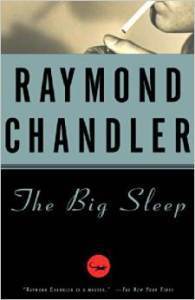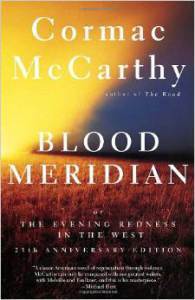Nathanael Green's Blog, page 4
March 4, 2015
Talking about Sex
There’s been some interesting gender-switching going on.
Well, at least in the English language there has been for at least 600 years or so.
For those of you who know me, you know I’m pretty into grammar and language history. So I’m excessively excited whenever there’s a new episode of the language podcast Lexicon Valley. And a recent one, Episode 54: Sex Workers, was particularly good.
From their site:
University of Michigan professor Anne Curzan discusses -ess, -ette, -trix, and other feminine endings in the English language.
Maybe not the most gripping sell-copy for you non-grammar folks, but let me tell you: this podcast discusses why and how words like dominatrix, editrix, and songstress work, where they came from, and how they and other sex-based words function in relation to our continuing struggle with gender identity and equality. If this stuff grabs you, then it’s worth your 30 minutes to listen to the whole thing. And probably subscribe, too.
One of the many things in there that made me think was when the guest, Anne Curzan, mentioned the lack of a standard gender-neutral third-person pronoun in English. … that is, how can we refer to him or her if we don’t know which one it is?
For example, if we’ve done away with the terrible and sexist “lady doctor” or the even worse doctress, how can we complete this sentence:
When you see your doctor, ask how much
red wine recommends you drink.
Ask him? Or ask her? Either one still requires some identification of sex. (Clearly this is just a grammar example because we all know that we should drink lots of red wine. For health purposes, of course.)
So how do we form grammatically-correct sentences if we don’t know what’s under Doc’s white coat??
Let me give you my answer: it doesn’t matter. Just use them and they.
Look, I know so many people scream that it’s incorrect grammar to use a plural pronoun with a singular antecedent. “There’s just one doctor! There’s no them!”
Well, grammar changes. And besides, we already do this in popular speech.
“Who’s your English teacher?
They’ll teach you to use pronouns.”
We all know that they refers to more than one person. Except when we see a sentence like the one above. Then we all understand that the speaker’s thinking, “I don’t know whether to use he or she, so to avoid getting it wrong, I’ll use they. Plus, I don’t want to sound like an idiot with that ridiculous he or she nonsense.”
AND, if you want to get all old-school about it, we already have a historical linguistic precedent for how a plural becomes singular—remember thou? That used to be the second-person singular pronoun until you got all uppity and took over. So we already have a pronoun that works in singular and plural (though, admittedly it can get confusing in certain contexts, which is why we get y’all and youse).
For my money, the singular they does two things that make it invaluable. One is it makes our speech and writing more fluid. If you don’t know a person’s gender, don’t guess or make weird constructions like he/she or (s)he. That just draws attention to the construction of language and how hard you’re working to seem inclusive. Using they makes your communication clearer and easier.
Another thing using the singular they does is it makes our speech more inclusive in a way that many people have been pushing for. Traditionally, English would have used he for any singular of unknown gender. But many argued, and perhaps fairly, that that showed a bias against women and, to be more inclusive, we tried the him or her construction. But that doesn’t fully address current concepts of gender fluidity or the fact that gender doesn’t necessarily need to be a binary system—people don’t always fit into hims or hers.
While some people rail over he/she or suggest totally new words like ze to address the gender-neutral issue, English speakers have already fixed the problem. It’s just that most grammar books (and the English teachers who cling to them) don’t recognize the popular use. But I say it’s OK to use they.
And if a so-called purist gives you flak about “proper” grammar, tell them Shakespeare and Jane Austin also used the singular they.

February 19, 2015
Tasting Outside Your Genre—of Books and Burgers
Every writer knows they’re supposed to read books from different areas of the bookstore.
Wait, no. Every reader knows that, too, or at least has heard the recommendation to read widely.
The advice goes something like this:
“You write sci-fi/mystery/romance/YA/whatever? Read everything, old and new, in your genre. Then read lots of stuff in other genres.”
Or, alternately for readers who have less interest in writing:
“You like westerns/fantasy/literary fiction/whatever? Try something different to expand your horizons.”
Basically, that thing you like? Read lots of it. Then also read EVERYTHING ELSE!
But, wait … that’s a lot of stuff. One estimate is that there were more than a million print books published in 2013. That’s in the US, in one year, and only print books. How can you possibly keep up?
Well, you can’t.
And there’s the problem with the suggestion of reading outside your genre. If you love reading fantasy (like me), you want lots of it. So you go and you gorge on George RR Martin, JRR Tolkien, Neil Gaiman, Robert Jordan, and the like. Then you might dig into older stuff like Robert E Howard and Fritz Lieber. And once you hit some of the big names, you move on to the deep tracks of lesser-known authors who still offer incredible stories and great writing. Because there are thousands of people telling different, amazing stories in every genre, you always have something new to read.
It’s like cheeseburgers. Yes, burgers. They’re delicious and fill you with happiness. There’s an incredible variety of of how they’re made, what is in them, and how much you’ll enjoy them, and you want to taste them all! (I once had one—a burger, not a book—topped with a marrow ragout that was unbelievable!)
And if your love as a diner prompts you to become a chef (please follow my extended metaphor here), you want to taste as many burgers as you can. If you’re creating burgers, you need to experience the options and see what other people have done to help you perfect your own patties. So it’s easy to limit your consumption to what you want to create, especially because there are so many choices in your niche that you can never complete an exhaustive survey.
But.
Yes, there’s a but. For readers and writers alike, it’s important to taste new things. It’s challenging to pick up a new book with a cover that doesn’t look like the rest of those on your shelf. It’s not comfortable. What if you waste your time on this weird literary fiction thing? What if the mystery you pick up is dull and formulaic? What if this fantasy book is filled with saccharine and stilted dialog?
Well, then you’ve tried something different and learned about your own tastes. The more important question is: what if this literary fiction is filled with amazing insight? What if the mystery keeps you huddled under your bed lamp while your spouse snoozes? What if this fantasy book reveals more about our real world than “realist” novels?
And for writers, the temptation to stay with your type of book is even greater. There are so many giants in your genre that you haven’t read yet!
Here’s how I wrangle that. As a kid, I found The Hobbit, and then the Dragonlance and Forgotten Realms books, and fell in love with fantasy and have had a steady diet of it since. But thankfully, some people pushed me to read other things. And without that push, I’d have missed out on pure enjoyment and writing lessons offered by writers like Joseph Heller, Kurt Vonnegut, and Virginia Woolf.
I haven’t read everything that’s categorized in my favorite genres. It’s almost (if not entirely) impossible to. But I’ve read a lot, and continue to, while also taking time away from the type of stuff I write to read something very different. Because as much as I love cheeseburgers, sometimes a good piece of salmon is just as delicious.

With that in mind, and with thanks to Evan Ronan for his suggestion and my sister for her gift card with which I purchased some books, I’m trying some things that I wouldn’t ordinarily pick up.
Let’s start with The Big Sleep.

February 13, 2015
English Spelling, Why You So Weird?
Ever wonder why English spelling is so freakin’ weird and what it means for poor kids trying to learn to read?
Here’s your answer, posted this week on The Atlantic: “How Spelling Keeps Kids From Learning.”
Here are some of the tidbits from the article, by Luba Vangelova, that caught my eye:
English has 205 ways to spell 44 sounds
Because of a one-to-one letter-to-sound relationship in their language, “… after Finnish children learn their alphabet … they can read well within three months of starting formal learning.”
“… it typically takes English-speaking children at least 10 years to become moderately proficient spellers”
The word busy apparently was spelled bisy until non-English-speaking Belgians operating the printing presses botched their job.
Having a challenging language to read has real consequences for many, many children and adults.
There’s plenty more in the article, including how people propose to address the problems that come from much of the population struggling with their “reading level.” Definitely check it out.

February 10, 2015
What Does Your Book Recommendation Say About You?
It’s a little like picking your favorite book of all time. But maybe not quite.
This topic came up recently in a conversation with my friend Evan Ronan and I’ve been thinking about it ever since. And specifically because the book I’d force him to read (I’ll get to that in a minute) isn’t necessarily my favorite book of all time.
Maybe I’m loath to choose just one. There are thousands of amazing books and dozens that make me cringe at the cutting emotion, gape at the style, goggle at the deft characterization, etc.
(OK. There’s no maybe about it—I’m definitely loath to choose just one.)
But if you’re forced to choose just one book you wish you could make a friend read, your choice might say a little bit about your friend or how you perceive them. And maybe a little about you.
Think about this: if you said to your best friend, your lover, your parent, that of all the millions of books in the world, this one is the one you’d make them read, isn’t that an intimate act of communication?
It’s akin to saying, “Here. This emotional tone, story, character, all hit a note perfectly in tune with how I see myself and the world. This collection of metaphors is somehow me.”
 And the book I’d recommend, at least for certain friends, is Cormac MacCarthy’s Blood Meridian.
And the book I’d recommend, at least for certain friends, is Cormac MacCarthy’s Blood Meridian.
Now. I wouldn’t recommend that to everyone I know. (My mother would haaaaaaate this book if she even got to page 10.) But for a fair number of friends who have a certain type of fortitude, this book, all the way.
I don’t believe really good writing can be paraphrased, so I’ll just say that I’ve read this book a number of times, and each time, its power and brutality leave me feeling shaken and wounded and amazed.
What that says about me or what I think of my friends’ reading proclivities? Who the hell knows. Maybe nothing. Because after all, it’s just a book recommendation.
So what about you? What’s that one sledgehammer of a book that you wish you compel others to read?

January 31, 2015
Here We Go, Ladies and Gentlemen
Oh, the dreaded first post on a new page.
Don’t know if you feel the same way, but, man, trying to get a new blog up and running is a good time except for writing that very first post.
So I’m going to skip all the bad ideas I had about just typing a joke, or giving you a list of the types of things I’m going to write about, or just posting pictures of bones and weird stuff.
Really, what you need to know is I’m not limiting my topics on this blog. Not to writing, or grammar, or the history and culture of the First Nations in the US, or kayaks, or bagpipes, or any of the other dozens of things I’m interested in. Instead, it’s going to be whatever kind of ramblings this writer feels into.
So, I’m just going to ask you to check out my About Me page and maybe consider following the blog (RSS on the right).
Thanks, and I hope to see you in the comments soon!




